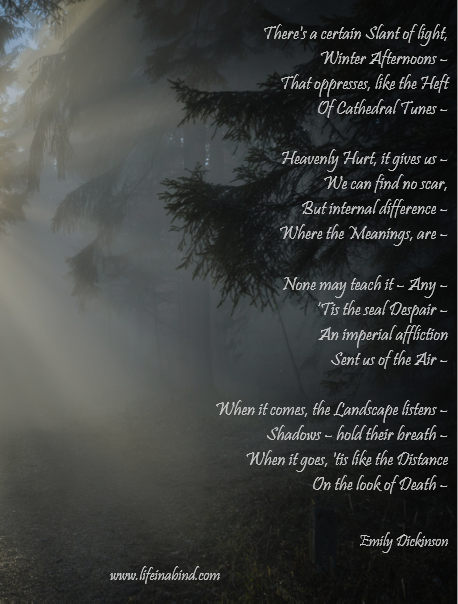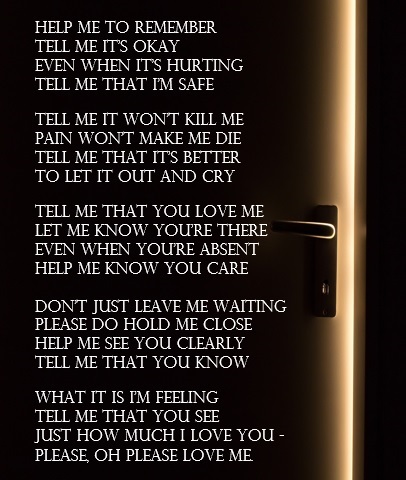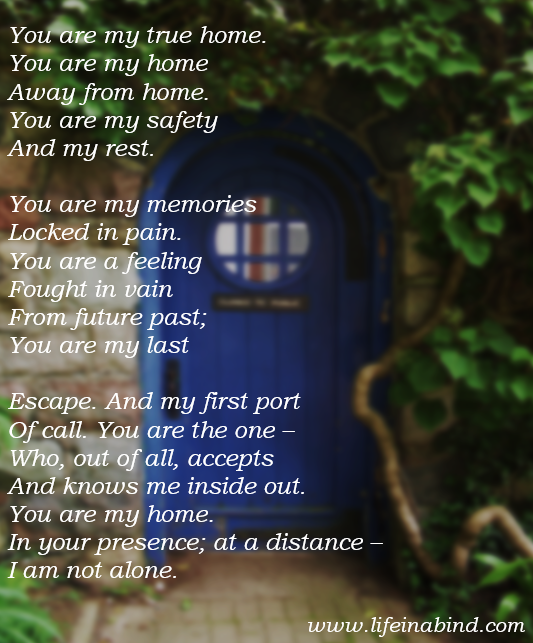
My therapist has always encouraged me to find the extraordinary in the ordinary. When I used to crave intensity or powerful therapeutic revelations, or emotional climaxes, she tried to point me in the direction of the beauty of the every-day, ever gentle in her encouragement to try open my arms to happiness and joy from where it could more easily be found, if I could perceive it and then receive it.
Today was an ordinary day, but it was lovely to remember my therapist as I sat in church listening to a sermon on the powerful words of the 19th century American poet Emily Dickinson, who was preoccupied, we were told, by finding the extraordinary within the ordinary. You could say she was driven to it – for much of her life she suffered from agoraphobia and was completely house-bound.
Today was an ordinary day, but I discovered a poet I didn’t really know, and a poem I don’t yet understand but really love. I had time and space for myself, for beautiful music, and for moving words.
Today was an ordinary day but I spent a part of it with my children doing something we hadn’t done before – attending a show in which we and the other families got to draw on a massive sheet of paper stuck to the auditorium floor. We drew as a story was told to us through words and dance, our illustrations bringing it to life. My children were a bit puzzled about why we were there – we don’t often go to shows, particularly not ‘participatory’ ones like this. I explained that it would be a nice ‘family thing’ to do. They liked that idea, and repeated it. My youngest said: “ah, family….I wish we could all draw naked….“?! I have no idea what was going through his extraordinary young mind, but it was a lovely, funny, moment to treasure – somehow, it was just so ….him.
Today was an ordinary day but at the theatre, during the show, I was reminded of my ability to still be childlike and to get carried away by performance, storytelling and simple creative expression. I was grateful for my ability to feel, uncomplicatedly but deeply; my inner child and adult experiencing the moment side by side, rather than trying to negate each other. A juxtaposition that added meaning to ‘both of us’.
Emily Dickinson often used juxtaposition – the better to draw out the extraordinary from within the ordinary. The light which oppresses, which should be heavenly but hurts, which leaves no visible mark, but shakes up our internal world of meaning. I read an article recently that said that as we get older we also become happier, even though that happiness is tinged much more with nostalgia and the anticipation of loss, than in our younger years.
This post is a ramble through my day – an ordinary day, but extraordinary enough to warrant a ramble in this way.
Save
Save







